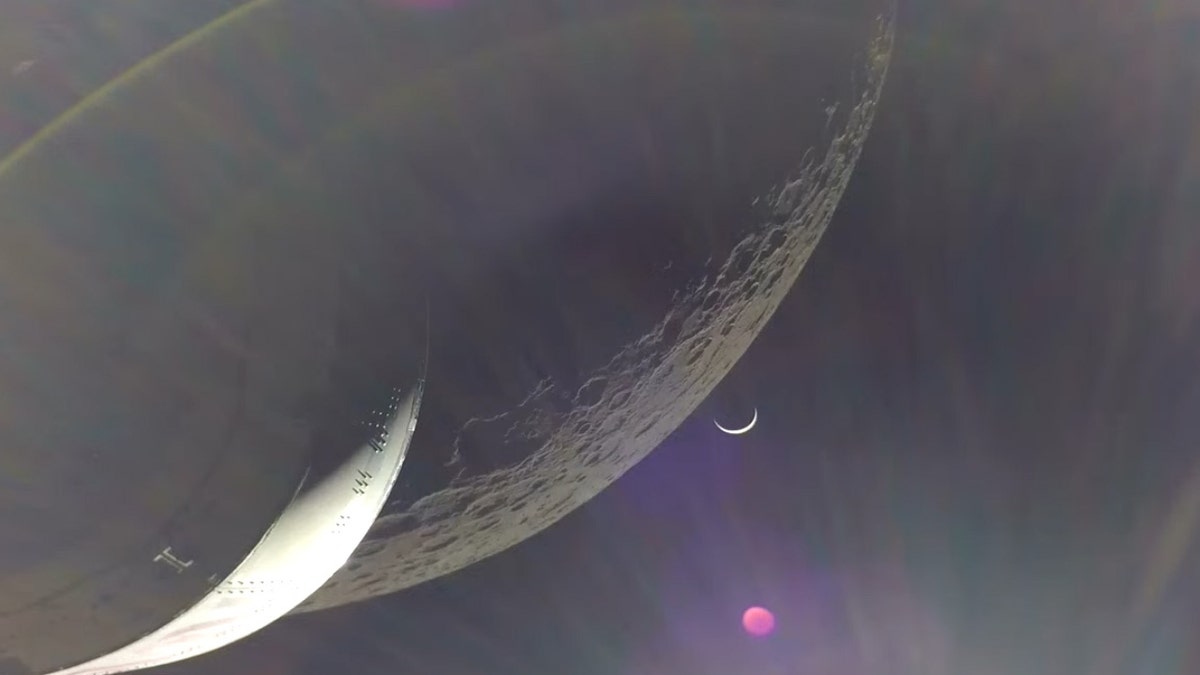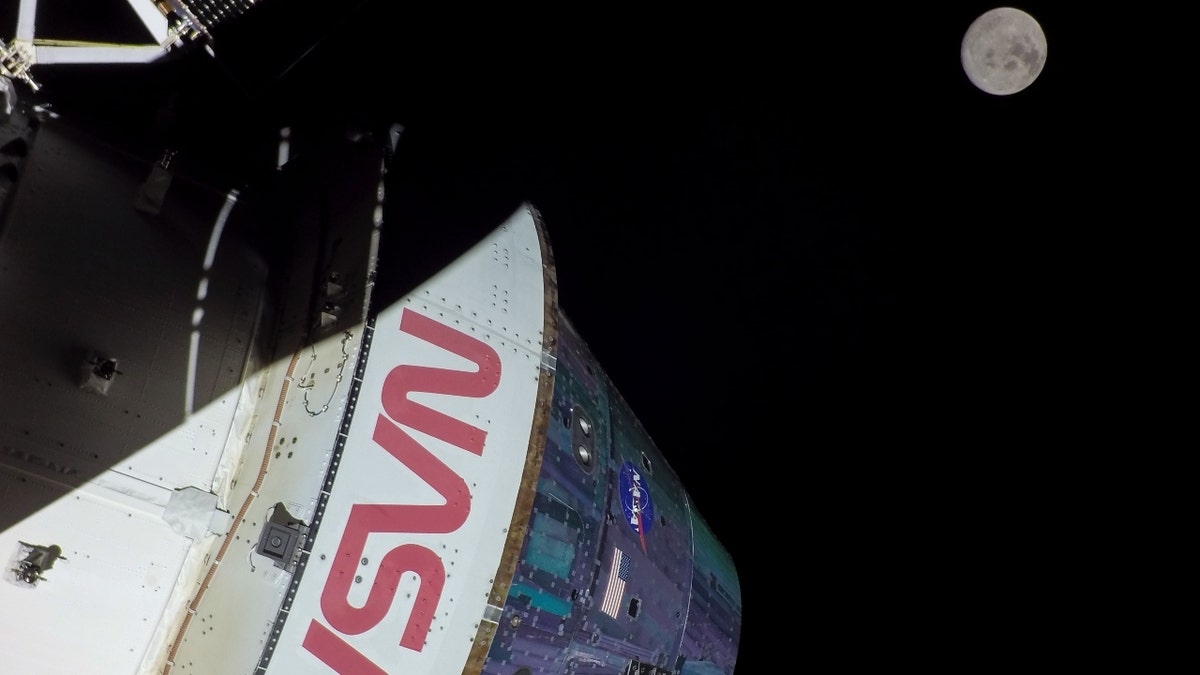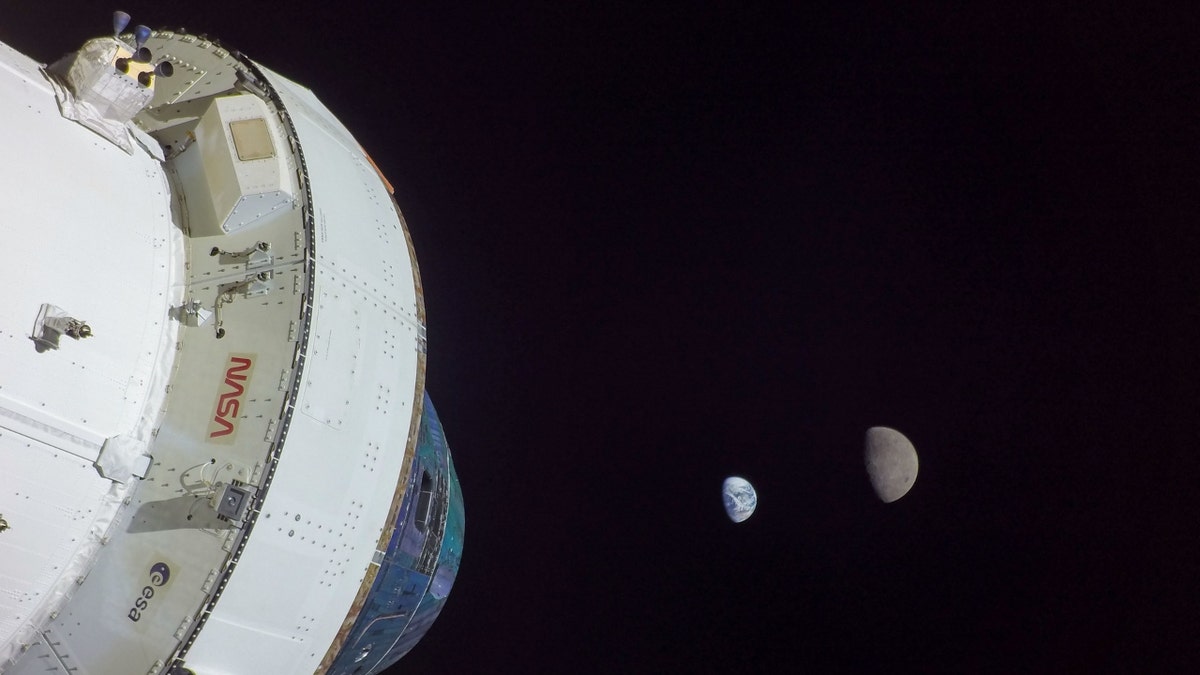NASA's Orion spacecraft captures the dark side of the moon
The Orion spacecraft views the dark side of the moon and Earth (Credit: NASA / SCI + TECH /TMX)
NASA's Orion spacecraft captured breathtaking shots of the moon and the Earth as it returns home.
It's on course for its return on Sunday and made its second and final close approach to the moon at 10:43 a.m. CT on Monday before its return-powered flyby burn.
The burn was the final major engine maneuver of the flight test. The spacecraft passed more than 80 miles above the lunar surface.
INCREDIBLE VIDEO SHOWS METEOR BLAZE THROUGH PENNSYLVANIA SKY

On Dec. 5, 2022, Orion completed the return powered flyby burn, committing the spacecraft to a Dec. 11 splashdown in the Pacific Ocean. (NASA)
"The lunar flyby enabled the spacecraft to harness the moon’s gravity and slingshot it back toward Earth for splashdown," NASA Administrator Bill Nelson said in a Monday statement. "When Orion re-enters Earth’s atmosphere in just a few days, it will come back hotter and faster than ever before – the ultimate test before we put astronauts on board. Next up, re-entry!"
STUNNING IMAGES OF LUNAR SURFACE CAPTURED BY NASA'S ARTEMIS I ORION SPACECRAFT

On the 19th day of the Artemis I mission, Dec. 4, 2022, a camera mounted on the Orion spacecraft captured the Moon just in frame as Orion prepared for its return powered flyby on Dec. 5, when it passed approximately 79 miles above the lunar surface. (NASA)
The mission team polled "go" to deploy recovery assets off the coast of California ahead of Orion's splashdown. As Orion splashes down, divers, engineers and technicians will secure the capsule, using a winch line cable to pull Orion into a specially-designed cradle.

NASA’s uncrewed Orion spacecraft reached a maximum distance of nearly 270,000 miles from Earth during the Artemis I flight test before beginning its journey back toward Earth. (NASA)
CLICK HERE TO GET THE FOX NEWS APP
As of 5:29 p.m. CT on Monday, Orion was traveling 244,629 miles from Earth and 16,581 miles from the moon, at a speed of 668 miles per hour.





















